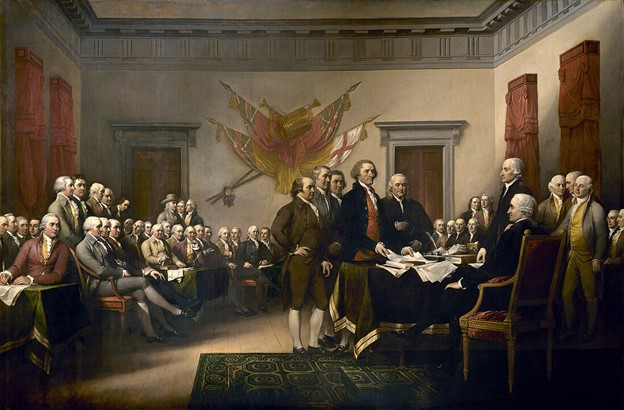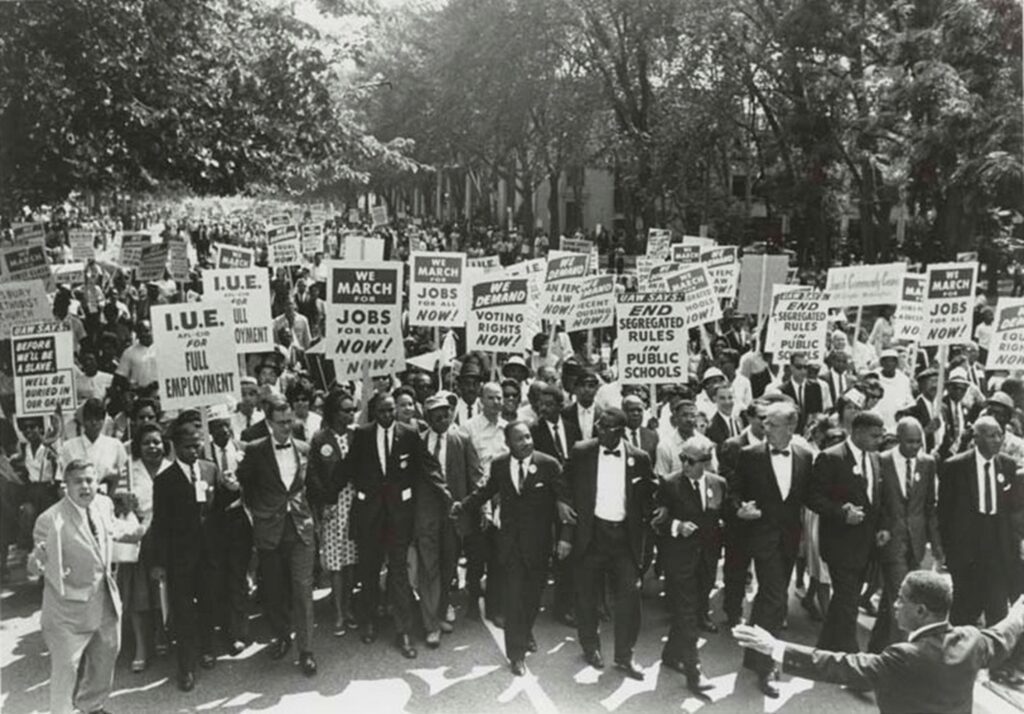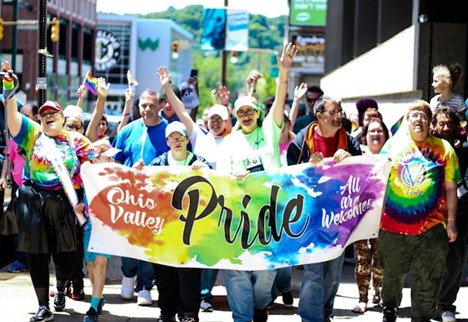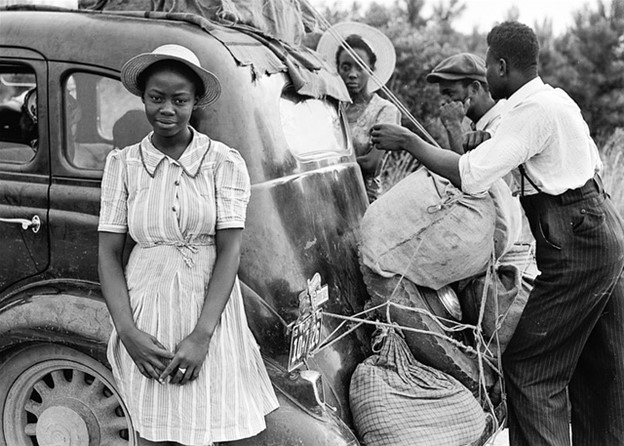
“Do we choose to see ourselves as the latest descendants in a long line of ancestors who have been struggling valiantly and against the odds, toward a better world? Or are we the bastard children of irredeemable racists, pillagers, and monsters? Are we the future of humanity – progress – or are we a plague upon the earth?” –Ryan Holiday1
In other words, what is our story? This is a difficult question because there is truth behind both perspectives. And it’s an important question because the story we tell ourselves has a huge impact on how we live.
What is the story of America?
Our history includes both slave owners and abolitionists. We stole the land from native Americans, and we established national parks. We liberated concentration camps and dropped atomic bombs. We’ve invented countless life-saving medical treatments and yet failed to make them affordable for the average citizen. We’ve created incredible prosperity while destroying our environment.
What are we to do with all of these conflicting elements? What is the true story of America?
The answer is not to pretend it’s all been good. We shouldn’t, as Texas has tried, to remove the ugly parts of our story from history textbooks. If we only studied the positive aspects, we would think America was indisputably good. On the other hand, if we only studied the negative aspects of our history, we would become cynics. We need both. And we can hold both in our minds at the same time.
We can cherish the ideals of The Declaration of Independence while simultaneously acknowledging that Jefferson was a slave owner and a hypocrite. We can recognize that the founding fathers were flawed men who designed a flawed government while simultaneously celebrating the fact that the constitution they wrote was a huge leap forward from absolute monarchy – one that has served as an inspiration for the democracies the world enjoys today.

Like any good story, America’s story is complicated. Humanity’s story is too, as John Green recently noted:
“We have to allow for complexity in the human story, that we have been both good at understanding and solving our shared challenges and not nearly good enough at understanding and solving them. We are capable of extraordinary generosity and sacrifice and equally capable of extraordinarily short-sighted thinking and horrific violence and destruction.”
We need to acknowledge both.
We cannot fully understand the present if we don’t fully understand the past. And we cannot create the future we want if we don’t fully understand the present. So the main reason we need to hold both sides of the story of our past is that it makes us better able to write the story of our future.
There has never been a better time to be alive than right now. But, at the same time, humanity has never faced bigger challenges than those we face right now. We’re smart enough and mature enough to acknowledge both the good and the bad. The bad gives us a job to do – something to fix. The good gives us hope that our efforts will be worthwhile.
You can be proud to be an American, but make sure your pride isn’t blinding you to the work still to be done. Pride can be good or bad, so we have to cultivate the healthy, egoless pride that encourages more good choices, more positive efforts, and more heroic endeavors.

You can believe that America is a force for good in the world while fighting to ensure we live up that ideal. You can love our country while simultaneously working to make it better. That’s true patriotism. “Love it or leave it” is bullshit. Strive to improve it because you love it.
America’s story isn’t about how we’ve always been great. Our story is about becoming better.
America’s story parallels your own story.
This way of thinking is just as necessary for self-improvement and personal success. Your story, too, is about becoming better. You work to improve yourself, not because you hate yourself, but because you love yourself.
Just as America must be understood as a work in progress, you must see yourself as a work in progress, which is the essence of having a growth mindset.
Just as we must push America to live up to its founding ideals, you must push yourself to live up to your own ideals, to live in alignment with your deepest values.
Whatever the truth of your situation, face it head on. The whole truth – the good and the bad. Realistic optimism requires this. The more people who take this approach in their own lives, the better we’ll get at doing it collectively.
You might have made terrible mistakes in the past – most of us have – but admitting that is not the same as declaring you’re a bad person. It’s actually a core part of being a good person. You can’t make things right if you’re unwilling to admit you’ve done wrong. Perhaps if we, as individuals, get better at owning our mistakes, our leaders and our nation as a whole will follow suit.

Compared to your fellow Americans, you might be someone of low socioeconomic status. Or you might be someone who has experienced injustice or misfortune. It sucks. It’s unfair. There should be better support systems in place to help people like you. And yet, you still take positive action because that’s how you get a say in how your story plays out. Your daily life embodies the fight for justice and progress.
Or you might be someone whose forebears owned slaves or sweatshops. Or you might simply someone who was born into privilege and power, in a world where so many are not. Your responsibility is not to feel guilty about your good fortune but to use it to lift others up. Get to work making things better, not because it’s your fault – not because you’re responsible for the situation – but because you’re response-able. Because you can.
Perfect isn’t an option.
We want perfect solutions to our problems. We want perfect strategies. We want it all to be fixed right now. But that’s not how life works.
All life involves tradeoffs and compromises – from self-improvement to relationships to politics.
The fact that nutritionists can’t agree on what the best diet is does not mean you should throw your hands in the air and just go to McDonald’s.
The fact that you and your spouse don’t see eye to eye all of the time doesn’t mean you should get divorced.
The fact that Congress can’t agree on every aspect of a border policy doesn’t mean they should give up and do nothing.
There’s no such thing as perfect. It’s not a place you can actually get to. It’s an ideal you move toward.2 And the steps we take are incremental. We make a little improvement here, a small change there, and move, inch by inch, toward better.
We should not be disheartened by this. We should be inspired. With every moment, with every choice, we get a chance to move forward, and every step in the right direction is a victory worth celebrating. Everything counts.
The story of America is about becoming better.
There have always been people who resisted progress, who chose the safe and selfish path of keeping things the way they were because it was better for them. But there have also always been helpers, healers, and heroes. There have always been people clamoring for change and pushing forward, forcing us to become better.

Think about how you would describe any great novel or blockbuster movie. Does your summary of the story focus on the bad guys? Or does it center around the heroes and their ultimate victory? You would acknowledge the villains and the obstacles, of course, but the main thread of the story would follow the hero’s journey – how they overcame those obstacles, improved themselves, and fought for what’s right.
So the story of America is not a story of greed and injustice. It includes those things, but they’re not the point of the story. The story of America is about fighting for progress in the face of those evils. It’s about expanding access to freedom and opportunity. The story of America is a never-ending battle to do better, to become better. Considering what the world looked like for all of recorded history up until 250 years ago, it should not surprise anyone that this has been an uphill battle.
So when someone tries to sell you the idea that we should go back to a time when America was “great,” don’t buy it. It might have been great for guys like him, but it wasn’t great for many people – people who are better off today because of the progress we’ve made, people who can be better off still because of the progress yet to come.

Your story is also about becoming better.
In your personal life, you might be an underdog – someone with a disability, mental health struggles, past trauma, or a predisposition for addiction. You should acknowledge how unfortunate and unfair that is, and, at the same time, you should see it as a reason to double-down on effort, doing everything you can to improve your odds of health, happiness, and success.
Or you might have everything going for you – someone with no physical or psychological problems, someone who had an idyllic upbringing. You should acknowledge how lucky you are and feel grateful, never forgetting that most people have it harder than you. And, at the same time, you should not rest on your laurels. You should not mistakenly believe you have no room for improvement. Keep growing and learning. Use your privilege to help others. Lead by example.
Whatever the case, the thing that makes your story meaningful is the pursuit of progress.
This attitude is what we need in our personal lives and in our civic life.

The story of your life is still being written, and your choices contribute enormously to how it is written.
Likewise, the story of America is still being written, and we’re all coauthors.
So don’t complain; work to make things better. Speak up about what’s wrong, yes, but do so as a call to action. As Obama said at the DNC this year, “Do not boo. Vote.”
The same is true in your personal life. Complaining only makes things worse because it turns you into a passive victim. Instead, get to work on making things better, on becoming better, in spite of the obstacles. Because that’s what your story is about.
1Holiday, Ryan. Courage Is Calling: Fortune Favors the Brave (The Stoic Virtues Series). Portfolio, 2021. Video Summary.
2Ben-Shahar, Tal. Pursuit of Perfect: Stop Chasing Perfection and Find Your Path to Lasting Happiness! McGraw-Hill, 2009. Video Summary.
P. S. As you read, you might have been tempted to guess how I lean politically, so I’ll save you the trouble: I’m a moderate. I see the world and politics as complicated. If you analyzed all of my positions, I’d probably land center-left on the political spectrum. My favorite political commentator is David Brooks, who is center-right. I’m voting for Kamala Harris, not because I agree with all of her or Democrats’ positions, but because her character is far more fit for the office than Donald Trump’s. Trump has shown time and again that he will choose self-interest over national interest, which is the opposite of what a president should do.
